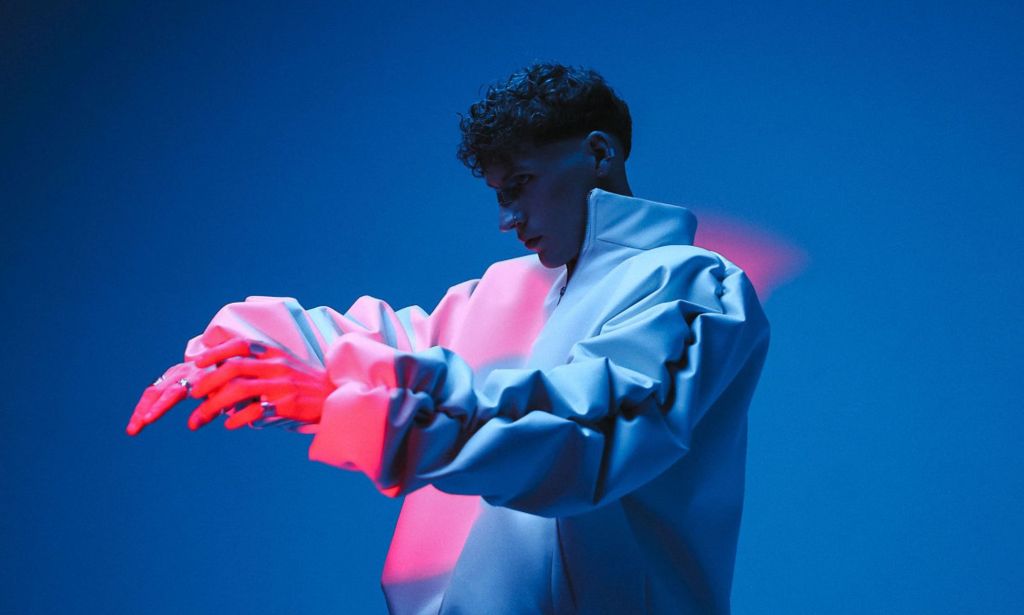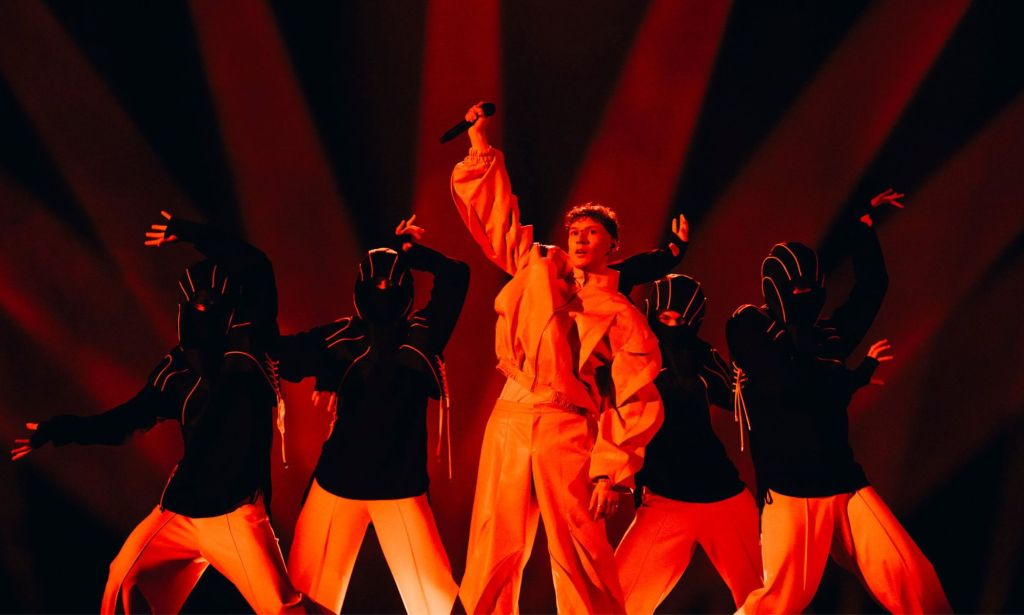Eurovision’s Silvester Belt on becoming Lithuania’s first LGBTQ+ entrant: ‘Why would I hide it?’

Silvester Belt is Lithuania’s first out LGBTQ+ entrant at Eurovision. (Eurovision/EBU/Sarah Louise Bennett)
This year, singer-songwriter Silvester Belt is making history as the first LGBTQ+ artist to represent Lithuania at the Eurovision Song Contest.
At 26-years-old, he’s had an impressive career so far: aged just 12, he became a finalist in Lithuania’s preselection for the Junior Eurovision Song Contest in 2010. He’s starred in reality contests, including the Lithuanian version of The X Factor, and won music show Aš – superhitas in 2017.
Yet Eurovision 2024 marks his biggest career move to-date, and so far, it’s going well. Bookies predict he’ll finish on the left side of the leaderboard. His song, hypnotic eurobanger “Luktelk”, has hit over five million Spotify streams worldwide. In Lithuania, it hit number on the charts and stayed there for several weeks.
It’s a huge feat for any artist in the country – but particularly for a bisexual one.
“Zero. It’s nada. It’s non-existent,” says Belt, speaking to PinkNews about LGBTQ+ representation in Lithuania’s music scene. It’s something he’s clearly passionate about. “Everyone is pretending to be what they’re not, and it p***es me off so much.”
While Eurovision has championed LGBTQ+ artists for decades, Lithuania has never sent an out one to the contest. In Belt’s view, there is a culture of fear among Lithuanian artists about being seen as LGBTQ+, as they feel there is “so much at stake” and that they could “lose [their] career” if they were to ever come out.
It’s not an unwarranted fear. Same-sex marriage is illegal in the country, while a 2020 survey found that six in ten LGBTQ+ people are never open about their identity. For Lithuanians with a public profile, the idea of coming out likely feels inconceivable.
Belt struggled with homophobia at school and admits he used to “hate” himself because of his sexuality, but he was out and “comfortable” with being LGBTQ+ before his first adult TV appearance. He didn’t have to contend with coming out in the same way some stars with a platform might have to.
However, he thinks if the scenario were different, and he had ascended to celebrity status before coming out, he’d still rather be “honest” with himself and the world, “rather than just pretending that you’re someone you’re not”.
His “honesty” has baffled some Lithuanian artists, he says. “They’re like, ‘Well, it’s a personal thing, and I don’t want to talk about it, and blah, blah, blah.” He understands where they’re coming from, “but saying you’re gay or whatever – it’s not a personal thing. It’s just like saying you have blue eyes. It’s not like you’re talking about what you’re doing in bed.”

The main reason he is frustrated by the lack of LGBTQ+ representation in his country is that he thinks it would change the population’s mindset. Six in ten Lithuanians still believe that same-sex relationships are “wrong”.
“If every single LGBTQ artist in Lithuania, not even artists, if everyone [would] come out, I feel like Lithuania would change in a day,” he says. “It’s just crazy that we have this massive elephant in the room and we’re just pretending it’s not there.”
Eurovision is huge in Lithuania; in 2021, almost a third of the population watched the grand final. So far, he’s survived being the country’s entrant without homophobic incident (in person, that is. Online, the trolls are out in full force – but what’s new there? Plus, he’s unbothered by that. “I’ve heard it all,” he sighs.)
“That’s the thing. I’m not even struggling. People are not throwing eggs at me on the street,” he says. It’s quite the opposite, in fact: as this year’s contest has an abundance of LGBTQ+ representation, he’s made a number of new friends – his “LGBTQ+ gang” – which features the UK’s Olly Alexander, Ireland’s Bambie Thug, and Switzerland’s Nemo.
“Why would I hide it if their response is so welcoming,” he questions. Having queer people around him has made the wild experience a bit easier, too. “I just feel safer. I don’t feel awkward at all. It just feels like I’m home when I’m around them.”

Belt doesn’t want to be a poster child for LGBTQ+ representation in Lithuania. That’s not why he wanted to Eurovision: “I don’t even know why I decided to do this,” he quips. But he knows the power he has for those queer people in the country who don’t see themselves often in the media, or aren’t able to be seen themselves.
“As much as I’m probably gonna trigger a lot of people with just my being, I feel like at the same time, it is a big thing for the rest of us. If I had someone like that growing up, I feel like it would have helped me not feel so sh*t,” he says. “At least it will bring up a discussion about it.”
Silvester Belt will perform during the first Eurovision semi-final on 7 May.
How did this story make you feel?

